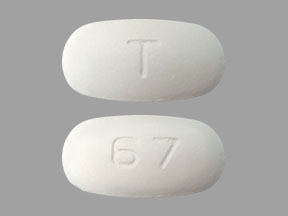
Niacin ER (antihyperlipidemic) Coupons & Savings Card – Discount Prices from $36.00
Generic for: Niaspan
Niacin, also known as vitamin B-3 or nicotinic acid, is utilized alongside a healthy diet and regular exercise to lower "bad" cholesterol (LDL) and triglycerides while increasing "good" cholesterol (HDL) in the bloodstream. It's typically considered when non-drug approaches haven't adequately reduced cholesterol levels. By managing cholesterol and fat levels, niacin helps decrease the risk of strokes, heart attacks, and pancreatitis in susceptible individuals. This medication can be used alone or with other treatments. To enhance its effectiveness, lifestyle changes such as adopting a low-cholesterol, low-fat diet, engaging in physical activity, losing excess weight, and quitting smoking are recommended. Always consult with your healthcare provider for personalized advice.
Our coupons are free to use. Before paying, show the pharmacist your Niacin ER (antihyperlipidemic) savings card to get your free discount. Use our filters below to edit the prescription box to match your needs. The Niacin ER (antihyperlipidemic) prices will update based on your prescription needs. Above our Niacin ER (antihyperlipidemic) coupons, you can change your location to see pharmacy prices and costs in other areas. We're here to help you buy Niacin ER (antihyperlipidemic) at the lowest price with our prescription discount card.
My prescription
Edit
1000MG, Niacin ER (antihyperlipidemic) (90 Tablet Extended Releases)
Select pharmacy

CVS
$36.00
COUPON PRICE
Albertsons
$40.15
COUPON PRICE
Walmart
$40.40
COUPON PRICE
Walgreens
$42.75
COUPON PRICENiacin ER (antihyperlipidemic) savings card
Show this card to your pharmacist
CVS
$36.00
BIN
ID
PCN
GRP
019876
LH95CF79FF
CHIPPO
LHX
Powered by
Niacin, also known as vitamin B-3 or nicotinic acid, is utilized alongside a healthy diet and regular exercise to lower "bad" cholesterol (LDL) and triglycerides while increasing "good" cholesterol (HDL) in the bloodstream. It's typically considered when non-drug approaches haven't adequately reduced cholesterol levels. By managing cholesterol and fat levels, niacin helps decrease the risk of strokes, heart attacks, and pancreatitis in susceptible individuals. This medication can be used alone or with other treatments. To enhance its effectiveness, lifestyle changes such as adopting a low-cholesterol, low-fat diet, engaging in physical activity, losing excess weight, and quitting smoking are recommended. Always consult with your healthcare provider for personalized advice.
Our coupons are free to use. Before paying, show the pharmacist your Niacin ER (antihyperlipidemic) savings card to get your free discount. Use our filters below to edit the prescription box to match your needs. The Niacin ER (antihyperlipidemic) prices will update based on your prescription needs. Above our Niacin ER (antihyperlipidemic) coupons, you can change your location to see pharmacy prices and costs in other areas. We're here to help you buy Niacin ER (antihyperlipidemic) at the lowest price with our prescription discount card.
Niacin ER (antihyperlipidemic) dosage forms
Use our Niacin ER (antihyperlipidemic) 500MG coupon with prices from $2.71 for 1 Tablet Extended Release. You can also use our Niacin ER (antihyperlipidemic) 500MG coupon with prices from $8.85 for 30 Tablet Extended Releases. We have a Niacin ER (antihyperlipidemic) 500MG coupon with prices from $28.06 for 90 Tablet Extended Releases. You can use our Niacin ER (antihyperlipidemic) 500MG coupon with prices from $30.18 for 100 Tablet Extended Releases.
Dosage Quantity Price from Per unit 500MG 1 Tablet Extended Release $2.71 $2.71 500MG 30 Tablet Extended Releases $8.85 $0.29 500MG 90 Tablet Extended Releases $28.06 $0.31 500MG 100 Tablet Extended Releases $30.18 $0.30 500MG 180 Tablet Extended Releases $36.81 $0.20 500MG 1000 Tablet Extended Releases $84.70 $0.09 750MG 90 Tablet Extended Releases $36.00 $0.40 750MG 100 Tablet Extended Releases $37.08 $0.37 750MG 180 Tablet Extended Releases $45.70 $0.25 1000MG 90 Tablet Extended Releases $36.00 $0.40
| Dosage | Quantity | Price from | Per unit |
|---|---|---|---|
| 500MG | 1 Tablet Extended Release | $2.71 | $2.71 |
| 500MG | 30 Tablet Extended Releases | $8.85 | $0.29 |
| 500MG | 90 Tablet Extended Releases | $28.06 | $0.31 |
| 500MG | 100 Tablet Extended Releases | $30.18 | $0.30 |
| 500MG | 180 Tablet Extended Releases | $36.81 | $0.20 |
| 500MG | 1000 Tablet Extended Releases | $84.70 | $0.09 |
| 750MG | 90 Tablet Extended Releases | $36.00 | $0.40 |
| 750MG | 100 Tablet Extended Releases | $37.08 | $0.37 |
| 750MG | 180 Tablet Extended Releases | $45.70 | $0.25 |
| 1000MG | 90 Tablet Extended Releases | $36.00 | $0.40 |
| 1000MG | 100 Tablet Extended Releases | $37.08 | $0.37 |
| 1000MG | 180 Tablet Extended Releases | $45.70 | $0.25 |
| 1000MG | 1000 Tablet Extended Releases | $134.10 | $0.13 |
